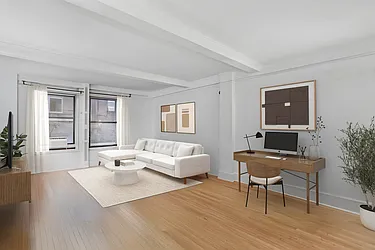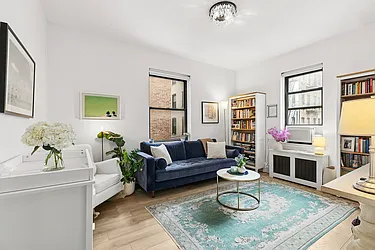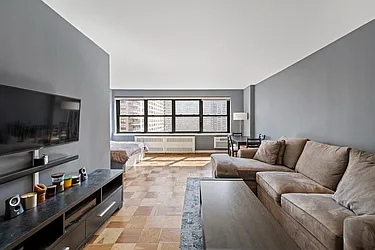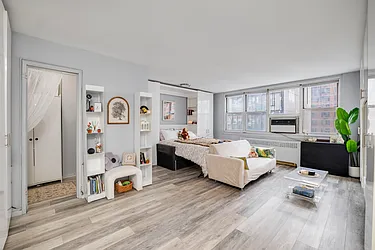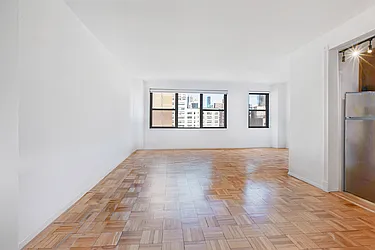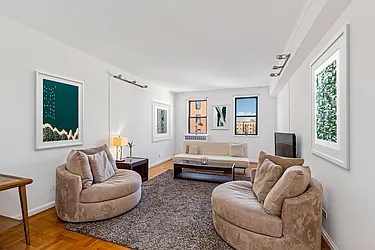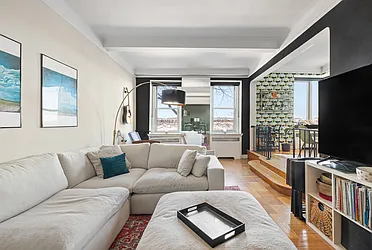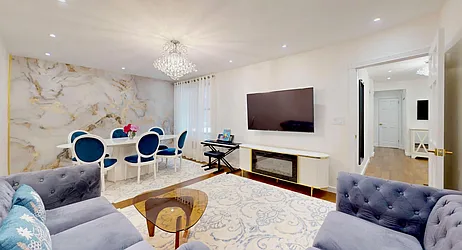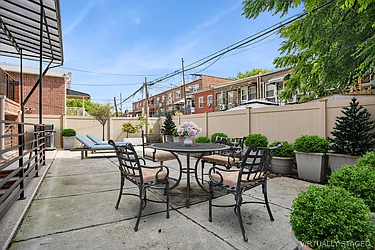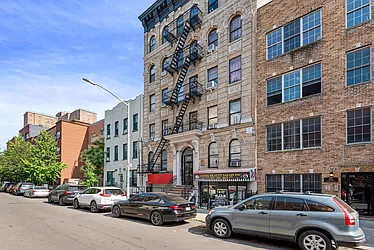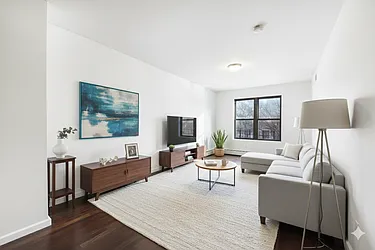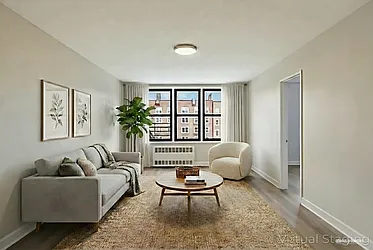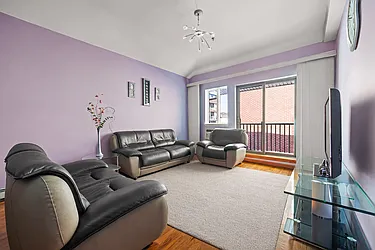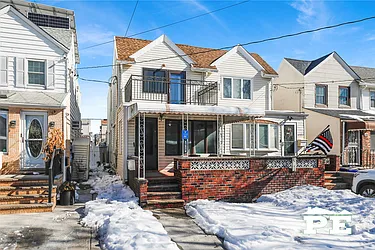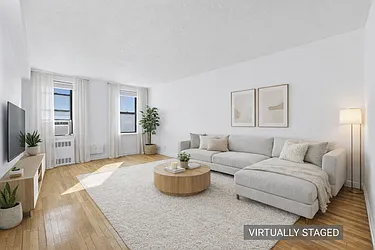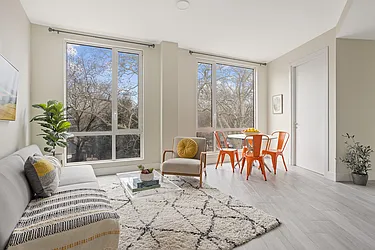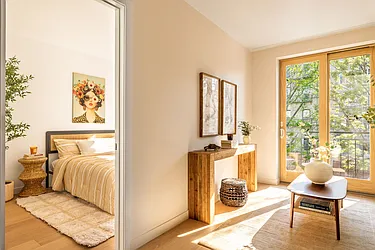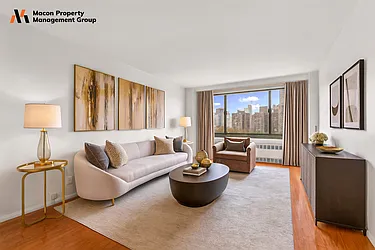Buying Your First Home in NYC
Buying a home in NYC is complicated, but rewarding. If you're a first-time home buyer, or even a returning buyer who needs a refresher, this guide will provide you with tips and strategies for your home-buying journey.
A few of the topics covered in this guide include: how to find your dream home, how to find a buyer's agent, how to prepare for a co-op board interview (and what even is a co-op vs. a condo?), information about home inspections, home loans and mortgages, and much more! We hope these articles will help you make educated decisions and feel a little more confident as you begin this journey — whether you're a first-time home buyer or a real estate veteran. Happy home shopping!You got a call from the co-op board, and they’re ready to talk. Congrats, your application is in great shape! At this point, the board has already looked at your finances and thinks you’d be a good fit for the building — on paper. Now, all you have to do is prove you’d be a great neighbor. Enter the co-op board interview. Here’s how to prepare for it, and ace it.
Manhattan Homes Under $1M on StreetEasy Article continues below
How to Ace the Co-op Board Interview
A co-op board interview can be intimidating. “The style can range from an informal gathering in an apartment to a formal interview with board members lined up at a table, with you in the hot seat,” says Andres Emilio Soto of Coldwell Banker. But there are a few things you can do to increase your chances of approval:
- Manage your online reputation: It’s time to edit that Facebook page and Instagram account. Delete any incriminating photos stat. Have you written blog posts that could show your passionate feelings on hot-button issues? Consider getting rid of those, too. You don’t want your opinions to ruffle feathers with the board before and during your co-op board interview.
- Do your research: Before the co-op board interview, try to get a bit of intel on each board member from the listing agent, if possible. “Recently, a listing agent shared that one of the interviewers was hard of hearing, so we advised my buyer to look directly at that board member while speaking,” says Kathryn Swift of Sotheby’s International Realty.
- Prepare for your pet to be vetted: Pet interviews are not uncommon, so if you have one, be aware that they might be invited along. “Dog parents should be prepared to discuss the dog’s behavior — they are looking for good canine manners,” says Swift. It also couldn’t hurt to get your pet bathed and groomed beforehand.
- Decide who should answer the questions: Couples should decide in advance who will answer certain types of questions. “For example, you may answer all financial questions while your spouse answers all personal questions,” says Jared Antin of Elegran | Forbes Global Properties. “Avoid discussing or questioning your spouse’s answers in front of the board.”
- Be professional: Show up on time, dress professionally, and be prepared. “In terms of dress and promptness, a board interview should be treated no differently than a job interview,” says Soto. Above all else, be polite.
- Bring your financial documents: Bring all your paperwork with you, in hand. This will probably include proof of rent payments for the past 5+ years, bank statements, 401K documents, savings statements, student loan details, and car loans. Coordinate with your broker to make sure you have everything you might need.
- Know your co-op board application: Know your info through and through. You should be able to quickly and concisely answer any questions about information on your application, preferably without having to look at it.
- Don’t boast: You want to convince the board you’re a good candidate, but bragging isn’t the way to do it. “I had someone get turned down last year by being too boastful of his financial success and professional status,” says Jonathan R. Stein of Douglas Elliman.
- Be ready to talk money: You’ve made it to the interview stage, so your finances are likely in pretty solid shape. But this does not mean the board will forgo an opportunity to question them. “Be prepared to allay fears and to show explanation and documentation,” says Antin. “If you know there is a problem, come prepared to explain your current cash flow situation and any improvements that are in the making.” If it’s an issue, offering to pay six months’ maintenance upfront shows that you are solvent and serious – and just may put you over the top.
- Never volunteer information: Short and sweet is the name of the game during a co-op board interview. Answer the questions you’re asked and let the board run the show, there’s no need to volunteer information outside of what is asked. “Boards rarely turn down applicants for being too boring,” says Antin.
Common Co-op Board Interview Questions
What types of questions will you be asked in a co-op board interview? Your life story and professional history, and then some. “They can ask anything they want,” says Stein. “It’s like the Wild West.” That said, there are some typical ones you can prepare for. Here are some common co-op board questions and the best ways to answer:
- Why are you downsizing? Talk about the desire for less space, never about the need to economize during your co-op board interview.
- Are you planning to renovate? If you are, don’t give away too much information. You’re taking it one step at a time and have no plans as of yet.
- Do you like your job? This is a veiled attempt to determine your job security. Be discreet and don’t provide details.
- What are your hobbies? For God’s sake, don’t mention your drum kit!
- Are you interested in being on the board? Neutrality is your best friend here. They want to see that you’d be engaged with the building, but not necessarily gunning for their jobs.
- What is your political affiliation? It may be hard to believe, but this question is actually legal to ask. Prepare an answer that is honest, yet respectful and tolerant of other views.
- Why did you decide on this building and apartment? This is an opportunity to flatter the building. Highlight the best parts of it and how you see yourself fitting in.
- Do you plan to sublet? Many co-ops have strict subletting policies. There is no surer way to make yourself persona non grata than to reveal your intent is to rent out your apartment. If you have another residence, make sure you have an explanation for what you plan to do with the vacant apartment.
- We see that your child plays the trumpet. What times do they usually play? With parents of small children, the board may be rather inquisitive about the noise. If you have children under the age of four, they might be particularly sensitive.
Begin your homebuying journey
Start with StreetEasyHow to Address Uncomfortable Questions
Board members can ask you all kinds of things during a co-op board interview. Anything from your job history to explaining certain financial transactions to personal questions is fair game. “Be prepared for lack of privacy,” says Kristi Ambrosetti of Sotheby’s International Realty. “Don’t get flustered or angry if something feels like an overreach on their part. Just do your best to answer it with grace and calm.”
To handle those types of questions, be ready to discuss any instability in your life. If you’ve changed jobs a lot recently, or your salary has fluctuated, or you’ve moved five times in the last seven years, you’ll have some explaining to do.
However, a co-op board is not allowed to ask questions that might be construed as discrimination under the city’s human rights laws. For example, if you’re a single buyer, they cannot ask about sleepovers or whether you plan to give anyone else a key (i.e., fishing about your marital status). Questions about countries of origin could be construed as discrimination. Questions about why you need that cane might be considered ageist. Even questions about how many kids you have (or plan to have) are verboten.
With this in mind, beware of loaded questions during your co-op board interview. “Often, the board is prevented by law from asking the questions it really wants to know,” says Antin. “Instead of asking you how many children you have or if you will be living alone, the board may ask whose name the unit will be in or who will occupy it. They’re hoping you fill in the blanks.”
When it comes to these kinds of inquiries, let your conscience and common sense be your guide. But remember, the more information you volunteer, the more likely you are to get into trouble. To try to prevent these questions from coming up, ask the selling broker to politely remind the board of the guidelines before the interview.
What to Say If They Ask, “Do You Have Any Questions?”
This is a tough one. In a job interview, you’d probably be advised to ask some follow-ups. It’s not so clear-cut when it comes to a co-op board interview, though.
“I usually advise against questions,” says Ambrosetti. “Even the smallest of questions could lead down a bad road.” For example, “Do you have any plans to renovate the hallways?” is the kind of seemingly innocent question likely to offend the board member who was in charge of the last hallway renovation.
So, what should you say? “If they ask whether you have any questions, say, ‘No, you’ve answered everything I wanted to know and I appreciate the transparency,’” says Stein. “It couldn’t hurt to add, ‘I would be very lucky to live here.’” If you do have additional questions, reach out to your broker after the meeting.
The only exception, according to Swift, is asking innocuous questions that show you are paying attention. Throughout the course of the interview, board members might share personal tidbits, like if they’re training for a triathlon, for example. “Asking small follow-up questions related to those topics shows that the applicant is listening, interested, and engaged,” says Swift.
Do’s and Don’ts of Co-op Board Interviews
Feeling overwhelmed by all the advice co-op board interview advice? Ambrosetti offers these quick do’s and don’ts that will have you feeling prepared in no time for a co-op board interview:
- DO follow the advice of your broker, who can best prepare you for your interview.
- DO show enthusiasm for the building and be gracious about the opportunity to interview with the board. Flattery will get you everywhere!
- DO dress to impress. It’s not a formal event, but it’s an opportunity to be your best self. No jeans.
- DO be on time – or, really, be early.
- DO know your board package and arrive prepared to answer questions that may come up regarding financial information.
- DON’T assume that your lavish renovation would be acceptable, and explain what you are “going to do” during your co-op board interview. If considering a renovation, let the board know that you have familiarized yourself with the alteration agreement and that you look forward to submitting a proposal for the board’s review and approval.
- DON’T talk about your extensive heavy metal catalog and history of entertaining the masses in your home until all hours of the morning. Find moments to share quiet home activities that you enjoy, if possible.
- DON’T share that you look forward to your NYU-undergraduate son often staying while you are not home. Many boards have a sensitivity to pied-à-terre buyers purchasing for their college-age kids, who will throw parties in their absence.
- DON’T talk about politics if possible during your co-op board interview.
- DON’T overshare. Less is always more. Think of this like a deposition: Only answer what you are asked, nothing more — unless it’s with a sprinkle of enthusiasm for the building or community.
Brooklyn Homes Under $800K on StreetEasy Article continues below
Why Your Responses Are Important
Think of your answers as an opportunity to shine during your co-op board interview. You’re already good on paper, so your responses to the board’s questions can give them good insight into your character, personality, and ability to coexist peacefully with neighbors.
“The in-person co-op board interview is truly an opportunity for the buyer to come alive from the pages and make it easy to envision them as a neighbor and fellow shareholder,” says Ambrosetti. “The individuals leading the interviews are thinking about their own potential future neighbors. They want to like you and have this be a home run for all.”
And remember, even if you think it went well, you likely won’t get an answer at the end of the meeting. Most boards do not give their decision until a day or two after your interview. Your attorney and broker will take the necessary steps to determine whether you have been approved.
Inspired to find your next place in New York? Whether you’re looking to rent, buy, or sell, search NYC apartments on StreetEasy.



